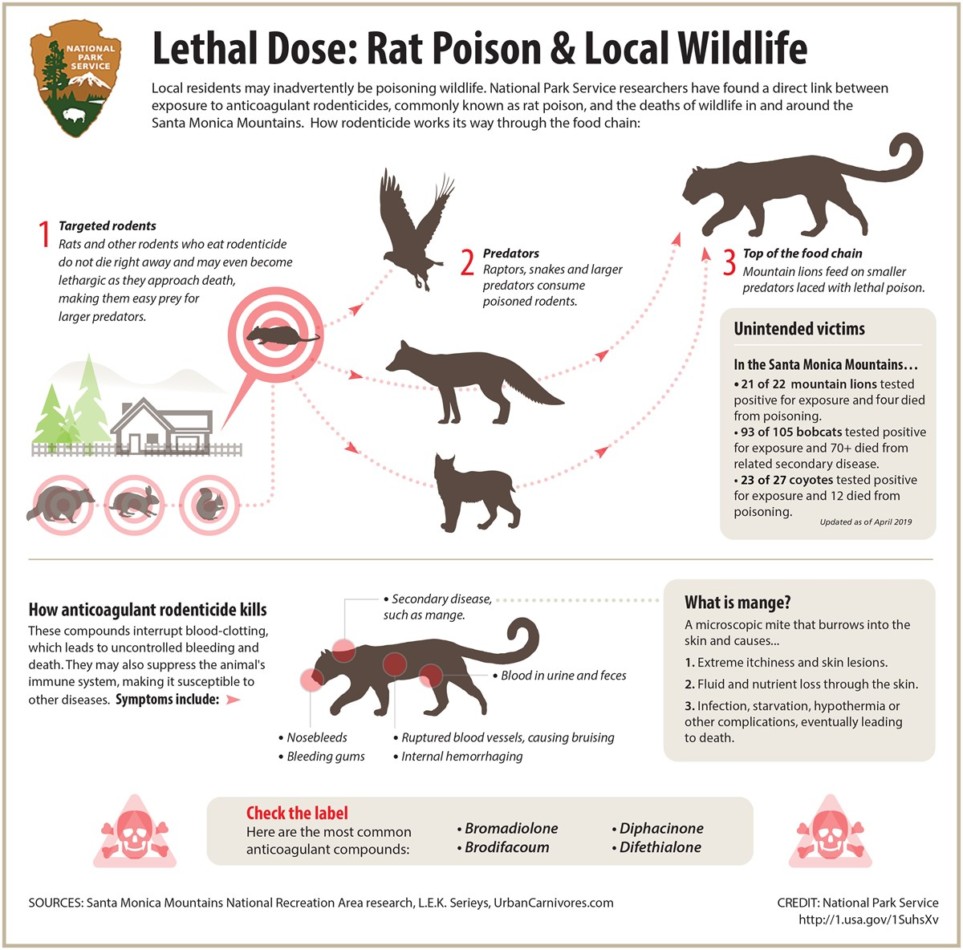We believe in a world where iconic wild cats thrive, a world where park staff and local communities are united and provide safe passage for wildlife across public lands and private ranches in Northern Mexico and Southern Arizona.
Since we hope to achieve this vision through our 1,000 Cats Project, we are launching this series of tips to help you protect bobcat, mountain lion, jaguar, and ocelot — as well as other wildlife — in your own backyard.
Tip #1: Say No to Rodenticides (Rat Poison)
Each one of us can have a big impact protecting wildlife in our community by not using rat poisons in our homes and yards.
Known as rodenticides, these rat and mice poisons are anticoagulants. They inhibit blood-clotting and cause death by internal bleeding for any animal that consumes the poison. Unfortunately, these poisons also work very slowly, and it can take a rodent up to 10 days to die after eating rodenticide.
This slow-action poison means that the rat or mouse, getting sick over the course of several days, is also increasingly likely to be eaten by a predator during this time. As the poison travels up the food chain, it also causes illness and death in bobcats, coyotes, foxes, mountain lions, and other predators like owls.

Research around the Santa Monica Mountains National Recreational Area shows that a majority of the predators around the park in Southern California have had exposure to anticoagulant rodenticides (source). Specifically, they found evidence of poisoning in 92% of bobcats, 83% of coyotes, and 94% of the mountain lions sampled. Even when rodenticide doesn’t directly kill a non-target species, it lowers the animal’s immune system after exposure and makes wildlife more prone to other diseases, including mange.
Rodenticides are a serious threat to all wildlife communities. As part of our 1,000 Cats Project, we encourage you to take action by keeping anticoagulant rodenticides out of your backyard and educating your neighbors on the negative effects of these poisons on non-target species.
Together we can keep our precious wildlife safe from unintentional poisoning.
For more information, visit the Santa Mountain National Recreational Area “Take Action Against Anti-Coagulant Rodenticide” webpage to learn about safe ways to manage rodents around your home, including how to eliminate the food and shelter sources that encourage rodent infestations.
